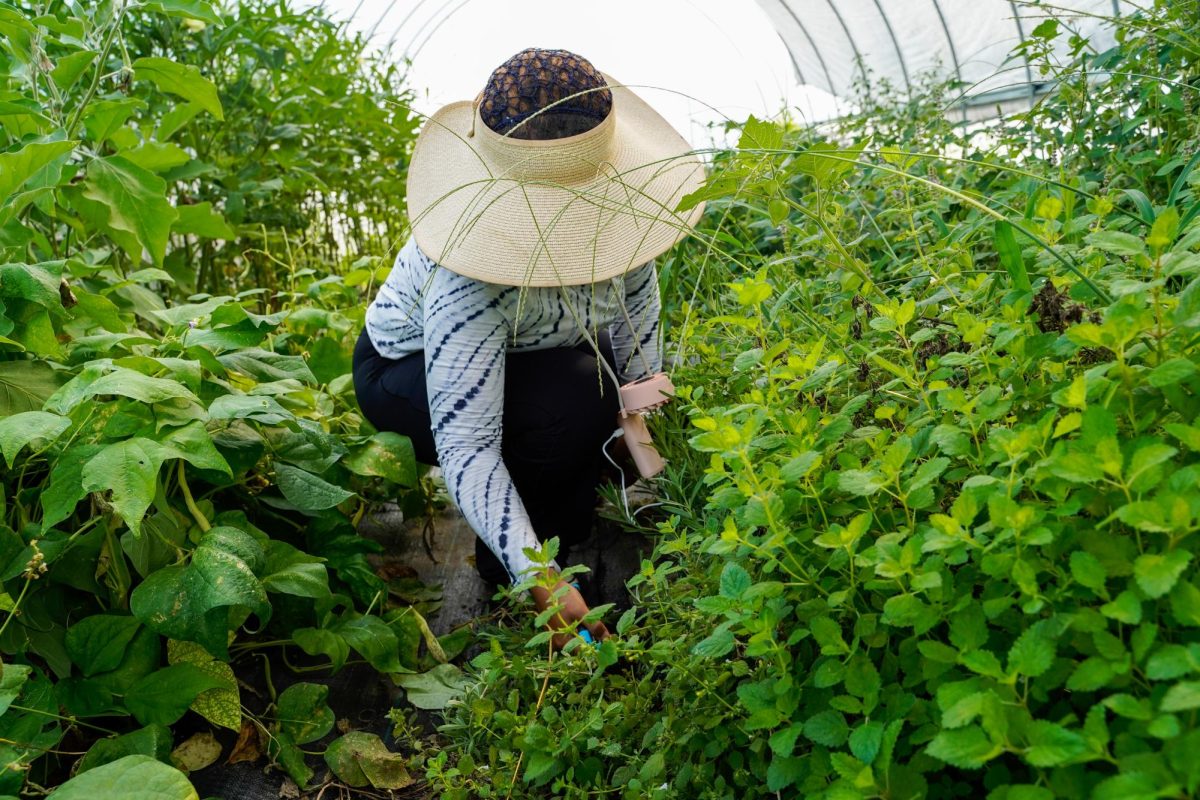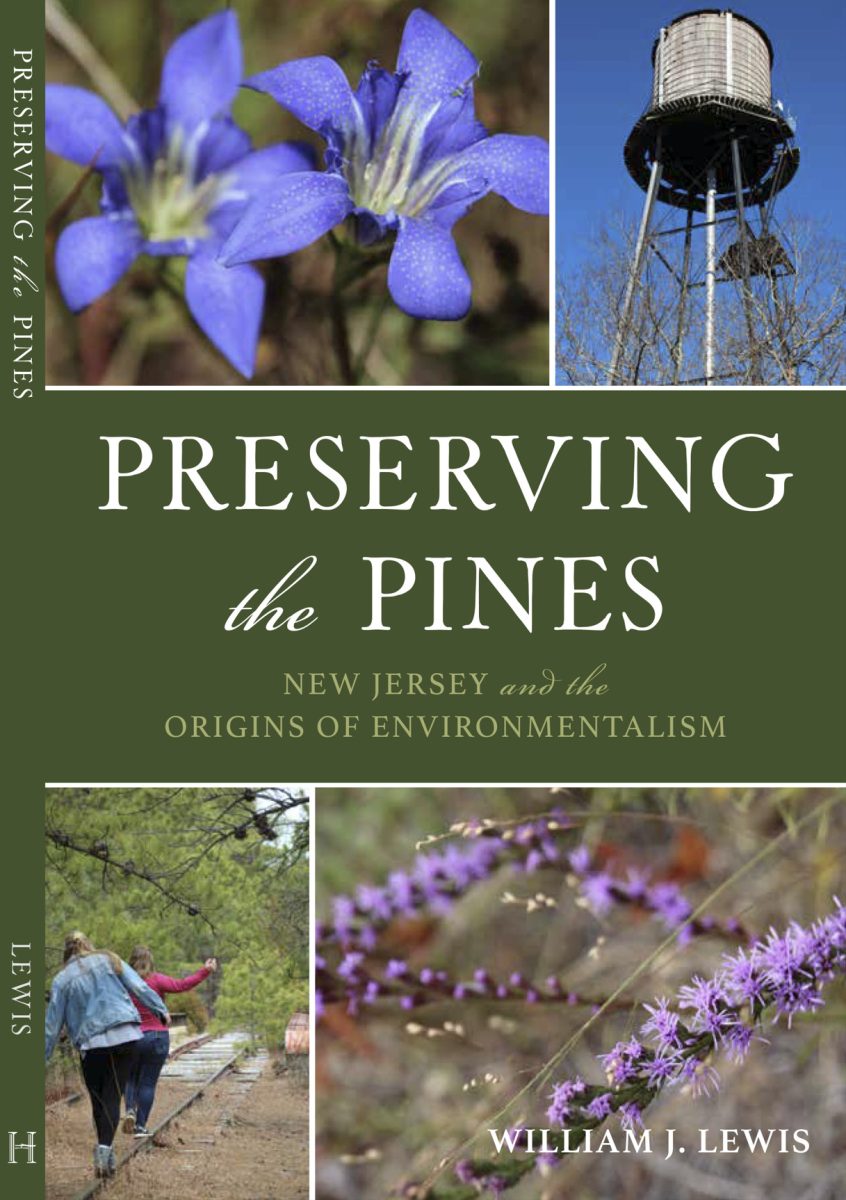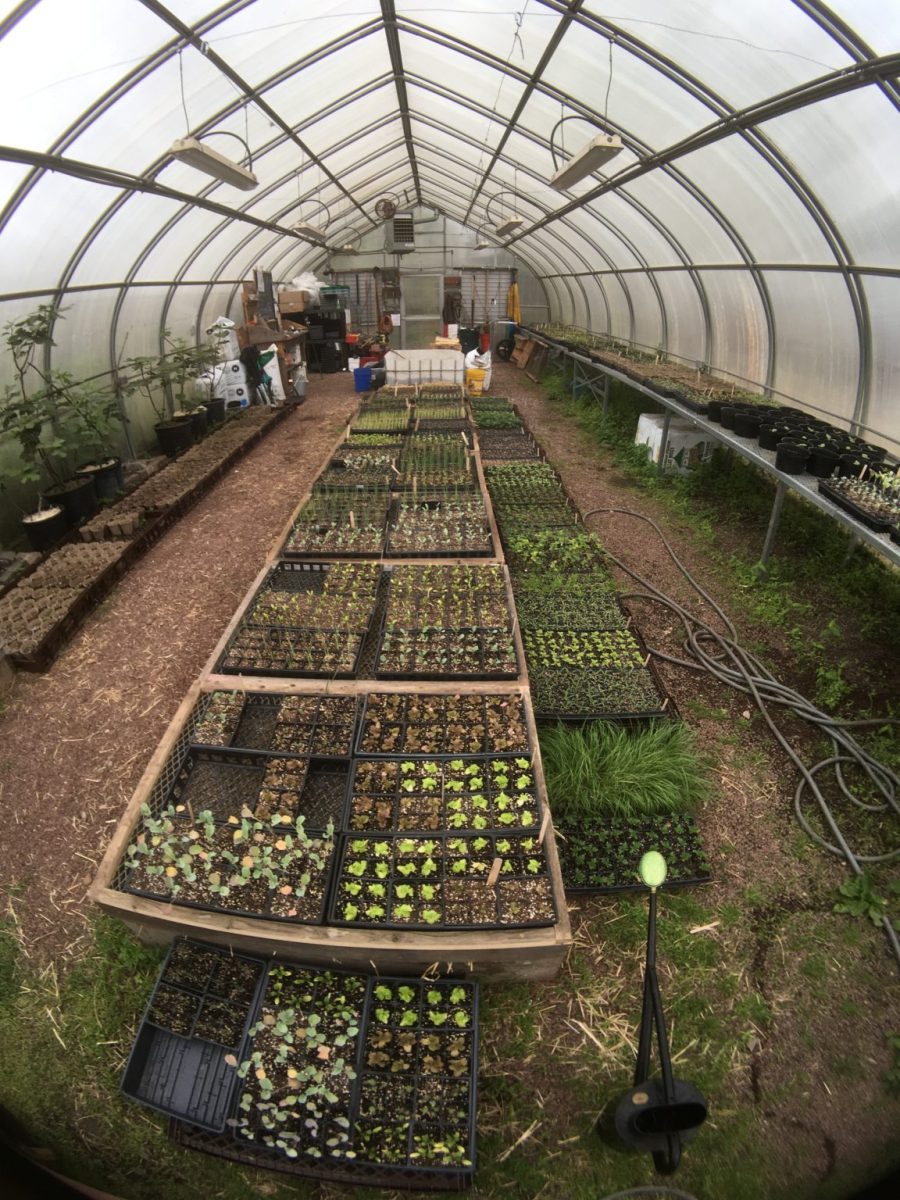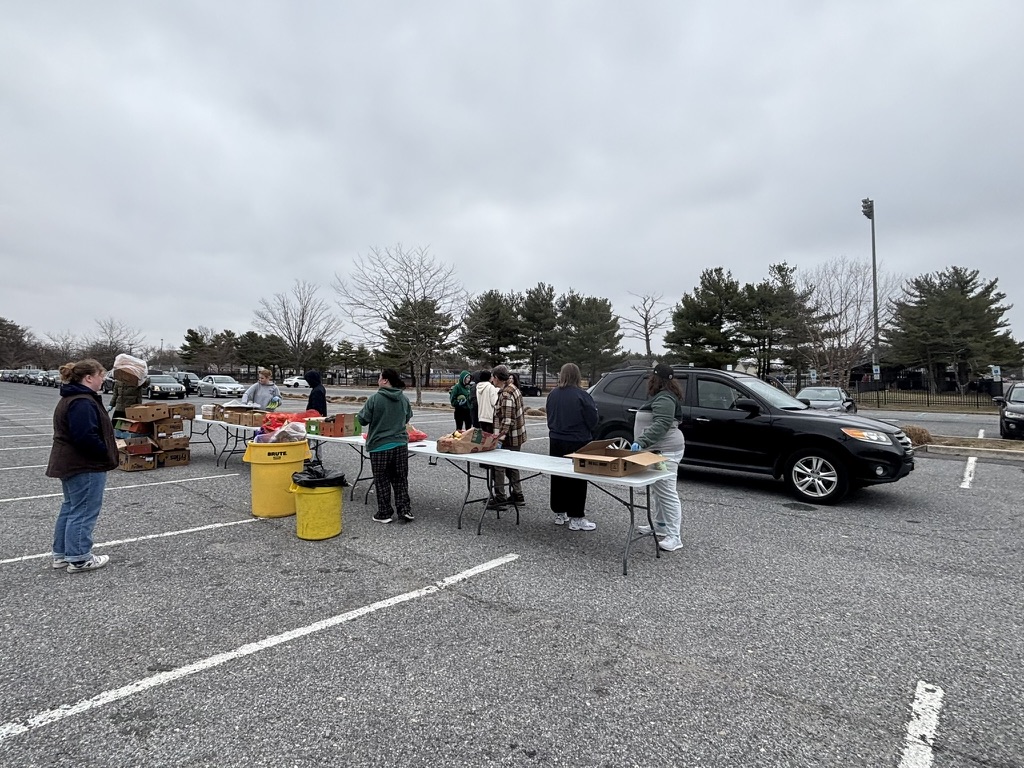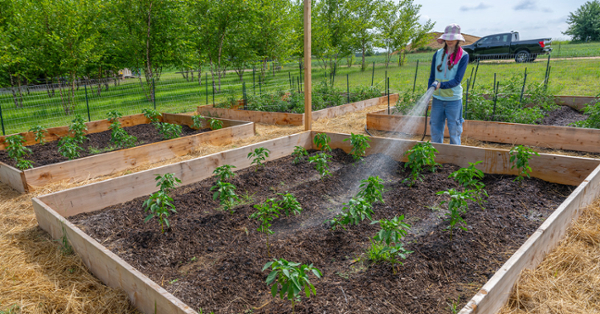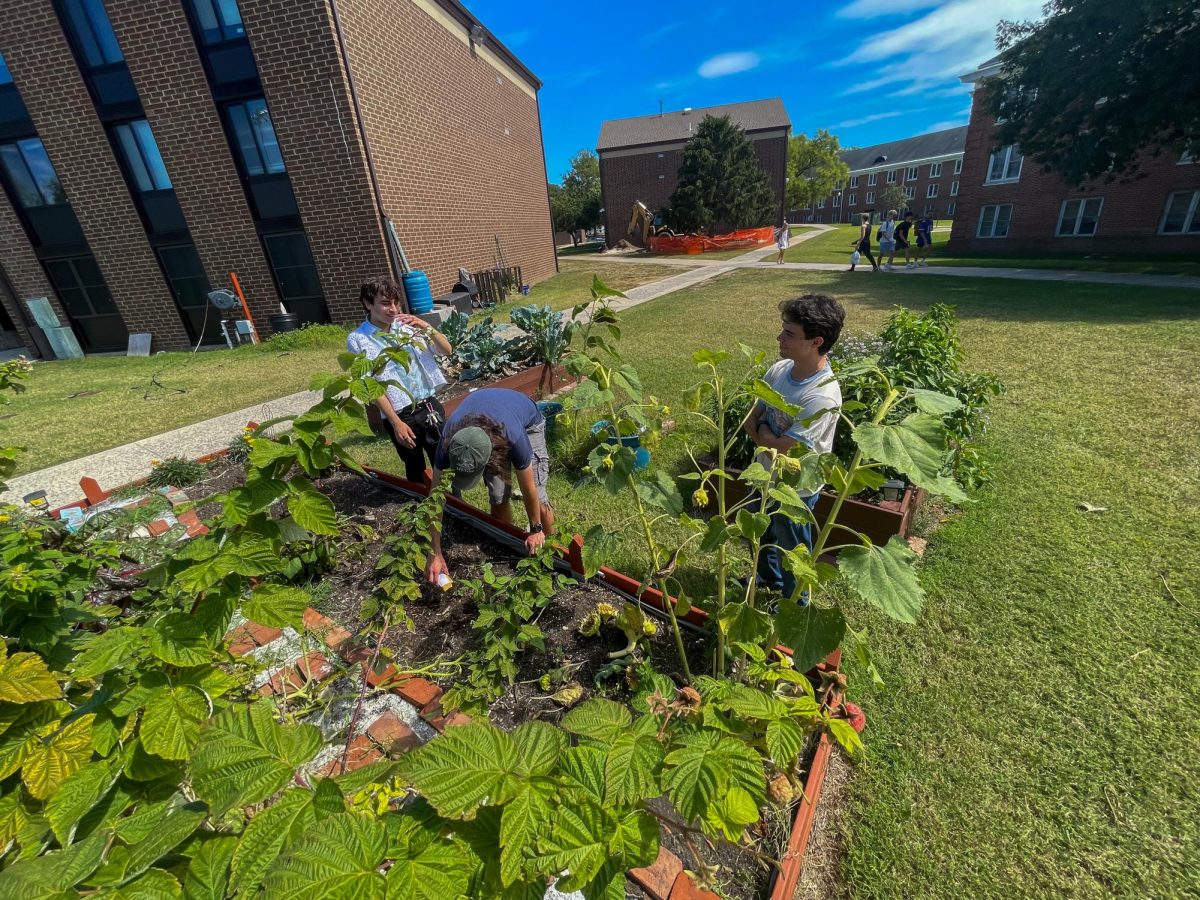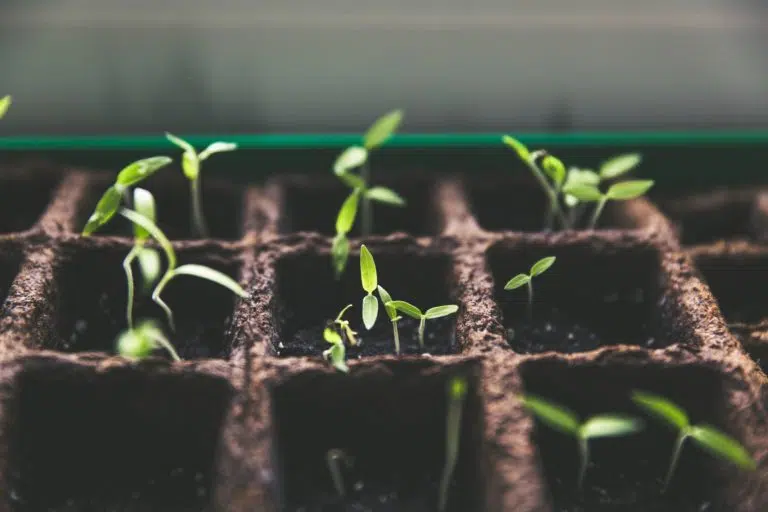Cookie Till wants to change farming and food in South Jersey.
“Going to a farm, buying organic produce, seeing the farmer, seeing the farm — that is what I wish for everybody,” said Till.
That is why Till, who owns Steve & Cookie’s Restaurant and Oyster Bar in Margate, purchased a family-owned farm in Egg Harbor Township in 2020 and founded Reed’s Farm.
Reed’s Farm grows and sells organic produce year-around, uses only natural fertilizers and compost, hosts an animal sanctuary, and provides a range of educational and vocational programs to help connect people to how and where food is grown.
“We don’t want to sustain the status quo because it’s pretty bad,” said Till. “It’s a very unhealthy feedback loop. And that’s what is killing the planet.”
Much of Atlantic County also fits the definition of a “food desert,” an area where a significant number of people have limited access to healthy and affordable food.
Despite having a population of close to 40,000 people, Atlantic City does not have a major grocery outlet. A Shoprite had been planned, but failed negotiations over the course of three years caused the project to be abandoned by the store’s proposed operators.
Till first attempted addressing local food quality and education through a nonprofit which created garden spaces in local schools. The gardens had an immediate impact on students and schools, but it proved challenging to produce a lot of fresh produce given the limitations of space and staffing.
The Reed’s Farm location provides a place to expand both agricultural education and the food capacity for the surrounding community.
“I saw an opportunity to have a hub here, very close to [Atlantic City], very close to where there’s food insecurity,” Till said. “And to make this a regenerative organic farm that serves everybody.”
Since purchasing and reshaping Reed’s Farm into her vision of an organic agricultural hub and fresh food resource for the area, Till and her team have expanded their efforts to include soil regeneration, programming with Atlantic County Special Services to teach agricultural skills to those with developmental disabilities, and even working towards bringing native New Jersey plants, including the paw-paw fruit, back into local circulation.
But to Till, what is just as important as the organic produce and the native plant restoration is the farm’s capacity to educate local students and train the next generation of food growers and activists.
“I love having students come out, because that’s the generation that’s going to make this happen,” she said. “And we don’t want to be the only farm doing this, far from it. We want to grow farmers.”
The network of passionate and food-forward people that the farm has gathered together is expansive. Some have even taken to addressing local food insecurity and climate inequity through the realm of political action.
Damon Smith, a 52-year-old Armed Forces Veteran started as a volunteer gardener at Reed’s Farm in 2020 and proposed a peace garden where veterans could find healing from trauma and plant seeds from various regions of war and conflict.
“[Vegetables] don’t have any problem getting along,” said Smith. “And we can take a page out of their book.”
After a few months at the farm, the work Smith was doing evolved into his current project, simply titled OUR Garden.
Tomato varieties are some of the most widely cataloged crops that Smith currently grows, with over 90 varieties from around 60 countries represented in his seed collection. In order to give visitors the ability to distinguish between regions, Smith has plotted out this summer’s garden to serve as a map of sorts.
“Afghanistan, Ukraine, Israel, Palestine, places that are close together, I would plant them close together,” he said. “So, in my western Asia section, I would have Israeli basil growing next to Palestinian chard.”
Seeing powerful ideas like Smith’s blossom on the farm, Till has been inspired to develop more, equally as meaningful partnerships.
In recent months, Reed’s began a more direct relationship with CROPS, or Communities Revolutionizing Open Public Spaces, an urban agriculture focused non-profit. The partners are collaborating with students and teachers at Atlantic City’s Texas Avenue School, as well as exchanging crops.
With the help of Reed’s and CROPS, the K-8 school will be expanding its outdoor gardening space. The partners will also be working with the Mighty Writers group to educate students about food, agriculture, and nutrition both during and after school.
Started in 2016 by a small group of Linwood residents looking to make a difference in their surrounding communities, beginning with the Linwood Central Square farmers market and a few small gardens in Atlantic City, CROPS has expanded its presence throughout Atlantic County.
The organization is currently led by executive director Alicia “Lisa” Newcomb, 31, who said combating food insecurity in Atlantic City is one of CROPS’ primary goals.
One of Newcomb’s proudest accomplishments, she said, was getting a program called Good Food Bucks off the ground. The program allows New Jersey residents to receive double the value of their SNAP (Supplemental Nutrition Assistance Program) benefit dollars when purchasing Jersey grown produce at participating farmers markets. CROPS’ central hub opened its doors at the end of 2022 at a location in Atlantic City’s Tanger Outlets.
“The foot traffic is not really there to be a full blown store,” said Newcomb. “So, we’re transitioning to more of a food-hub model, away from relying on day-to-day sales and towards a model where we’re aggregating food from both our farmers that we’re training but also other farmers throughout the county.”
As Reed’s Farm strengthens its relationship with CROPS and other local organizations, things like grassroots activism are still needed to promote civic engagement in the area.
Another emerging food activist is Ayana Plummer, a 24-year-old Stockton University graduate and co-founder of the Green Coalition of Atlantic City (GCAC), a newly formed union of all of the major players in the city’s green movement. Since their first meeting back in October 2023, the GCAC has had a slowly growing roster at their monthly meetings at the CROPS hub in Atlantic City.
Plummer spends her days arranging events and volunteering opportunities for members of the coalition, as well as seeking out grant funding to distribute to multiple organizations throughout the city to alleviate the effects of food injustice. Outside her role at the GCAC, Plummer also works as the Principal Community Organization Specialist at City Hall.
Plummer’s interest in urban agriculture was sparked by a food and agriculture class at Stockton University. After that class, she took an internship and later a full-time position at Reed’s for three growing seasons.
Plummer said her experience at Reed’s was one of the things that led her to start GCAC, a common sentiment among the gardeners, volunteers and other workers at the farm.
“I’m extremely grateful for it,” said Plummer. “Not only because I learned how to farm, but because of the community aspect on top of it. When you farm, you meet a lot of interesting individuals who are characters in the most beautiful, special way, who care so much about food and justice in general.”







